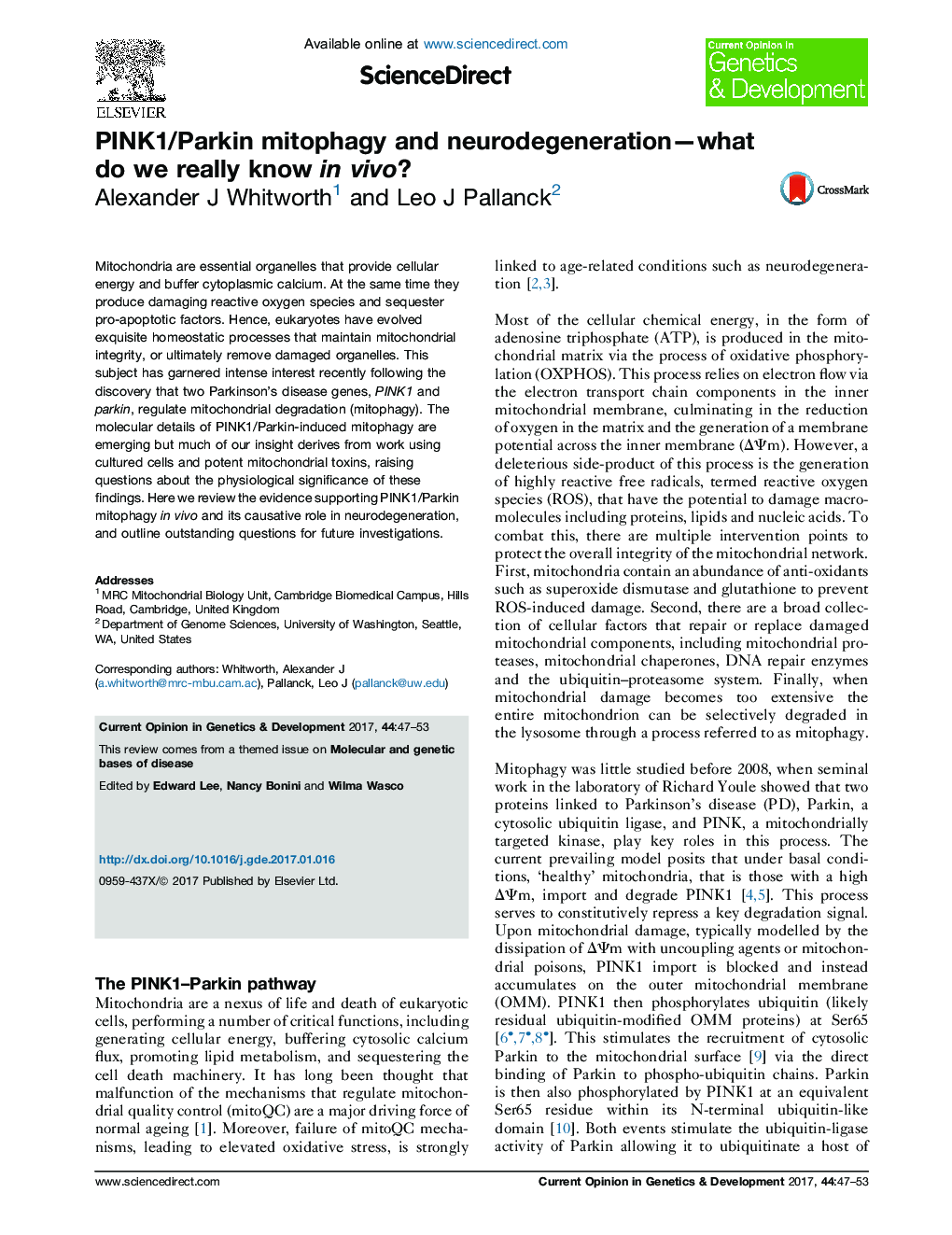| Article ID | Journal | Published Year | Pages | File Type |
|---|---|---|---|---|
| 5585637 | Current Opinion in Genetics & Development | 2017 | 7 Pages |
Abstract
Mitochondria are essential organelles that provide cellular energy and buffer cytoplasmic calcium. At the same time they produce damaging reactive oxygen species and sequester pro-apoptotic factors. Hence, eukaryotes have evolved exquisite homeostatic processes that maintain mitochondrial integrity, or ultimately remove damaged organelles. This subject has garnered intense interest recently following the discovery that two Parkinson's disease genes, PINK1 and parkin, regulate mitochondrial degradation (mitophagy). The molecular details of PINK1/Parkin-induced mitophagy are emerging but much of our insight derives from work using cultured cells and potent mitochondrial toxins, raising questions about the physiological significance of these findings. Here we review the evidence supporting PINK1/Parkin mitophagy in vivo and its causative role in neurodegeneration, and outline outstanding questions for future investigations.
Related Topics
Life Sciences
Biochemistry, Genetics and Molecular Biology
Developmental Biology
Authors
Alexander J Whitworth, Leo J Pallanck,
